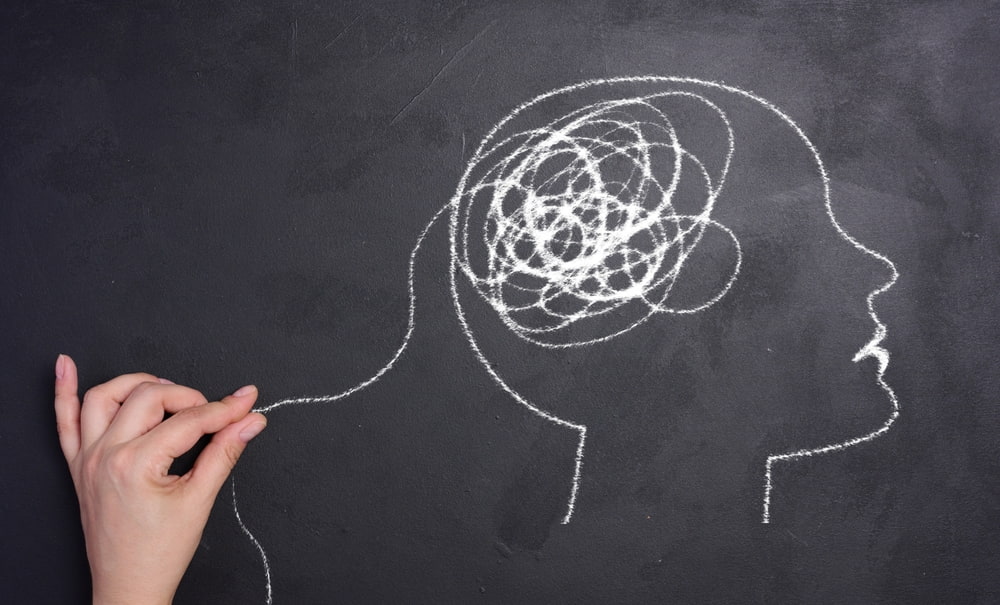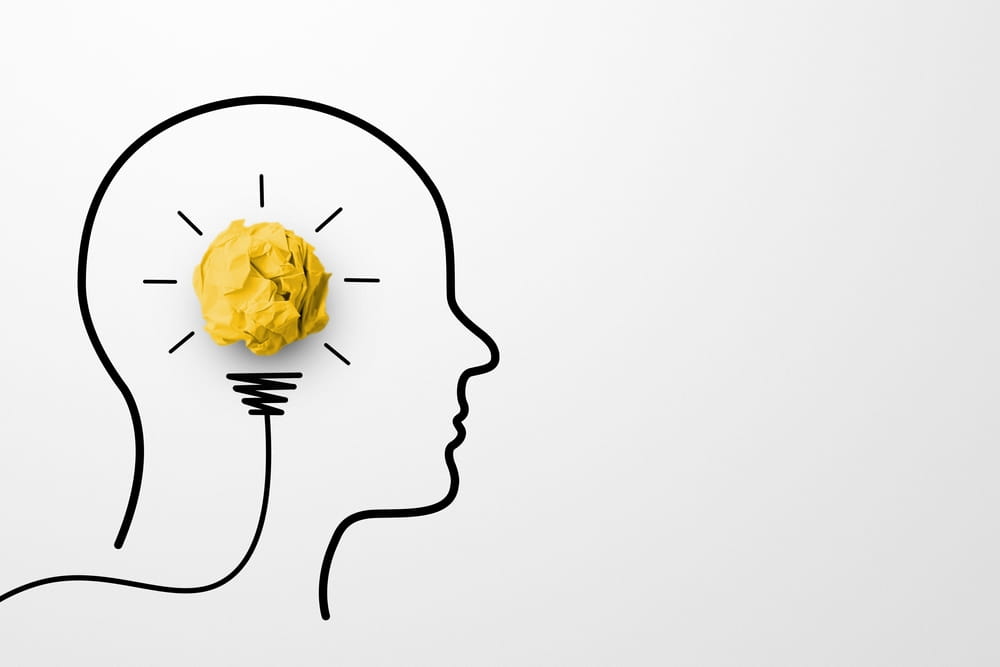Easy journaling prompts for emotional well-being


The Power of Journaling for Emotional Well-Being
Managing emotional well-being has become more important than ever. We often experience stress, anxiety, and a sense of overwhelm, making it challenging to stay grounded and emotionally clear. One powerful tool that has been shown to enhance mental health is journaling.
Journaling isn’t just about writing down your day-to-day activities; it’s a therapeutic practice that allows you to process emotions, reflect on thoughts, and gain insight into your inner world. Journaling for emotional well-being has been embraced by countless individuals, from high-performing professionals to everyday people looking for a mental health boost. By simply putting pen to paper, you open up space to express yourself, confront your emotions, and cultivate clarity in your life.
The benefits of journaling extend beyond just emotional release. It can help you manage stress, reduce anxiety, and even foster greater self-awareness. In this blog, we’ll explore how journaling can support emotional well-being and provide easy prompts that you can incorporate into your own life.


The Science Behind Journaling for Mental Health
Understanding how journaling affects the brain can help us appreciate why it’s such an effective tool for mental health. Journaling has a profound impact on our mental clarity, helping us process complex emotions and experiences.
How Journaling Impacts the Brain
When you write, you activate multiple regions of the brain, including the prefrontal cortex, which is responsible for decision-making, emotional regulation, and problem-solving. Writing about stressful or emotional events helps to create a sense of order, which can mitigate feelings of chaos and confusion. In fact, research shows that journaling can reduce the intensity of emotions, allowing individuals to gain more perspective on their experiences.
Furthermore, journaling has been linked to improved memory and cognitive function. Writing about your emotions enhances the integration of positive memories and emotional experiences, which strengthens mental clarity.


Journaling as a Therapeutic Practice for Mental Clarity
In therapeutic settings, mental health journaling is often used as a technique to promote self-reflection and emotional healing. Expressive writing allows you to explore difficult emotions and traumas, which in turn can help you process and understand them. Studies have shown that people who engage in journaling report lower levels of stress, improved emotional regulation, and a better sense of self.
When you journal, you are essentially talking to yourself, offering your mind the space to work through complex feelings. This helps create a clearer mental landscape and promotes emotional clarity. In fact, some psychologists recommend journaling as part of talk therapy to help individuals process unresolved emotions or traumas.
The Connection Between Journaling and Self-Care
Journaling isn’t just about emotional release; it’s a form of self-care that encourages personal growth and self-awareness. Through regular journaling, you develop a deeper understanding of yourself and your emotional needs.


How Journaling Supports Emotional Well-Being and Self-Awareness
Journaling is one of the most critical self-awareness metrics yet it stresses the fact of self-awareness. The act of writing becomes a mirror, reflecting not just what’s happening in your life but how it’s affecting your emotional health because your journal can initiate your reflection. When you write your thoughts and feeling regularly, you acquire the tool to spot trends in your behavior, responses, and emotions of dissatisfaction.
The manifestation of this accommodation is the pause and reflection on the life whose care job is of significant importance. A journal serves as a tool for you to reflect and ponder which enables your journal to act as a form a mirror, thereby enabling you to see not only what is happening but also how it is impacting your emotional health.
For instance, if you are already feeling, swarmed you feel writing down your thoughts might be of help that makes you aware of the primary causes. The reason could be work-related stress, some unresolved personal issues, or even sleep deprivation. Afterward, you can work on understanding the cause, and it is this process of discovery that will eventually make you a more peaceful person.


Journaling as a Form of Self-Care and Self-Love
Self-care means being kind to yourself, and it is considered to be the most energetic way of expressing yourself in your thoughts through journaling. By setting aside some time to jot down your thoughts, you are simply providing yourself with the freedom to breathe, think, and eventually, heal. Writing allows you to communicate with your own self more, thus giving you a sense of spiritual peace and security.
In fact, self-care journaling can be a form of self-love. As you reflect on your emotions, you’re not just acknowledging them; you’re validating your experiences. Journaling helps you become more compassionate toward yourself by allowing you to express your feelings without judgment.
Easy Journaling Prompts for Emotional Well-Being
Journaling is not a complicated matter. More often than not, a simple prompt is enough to get you started. If you’re having a hard time coping with something, you could do some journaling, which can help you recover your sense of emotional well-being and even make you more peaceful internally. Another approach that is worth trying is to cultivate your sense of thankfulness for even the smallest things in life with journaling prompts.
Prompts to Help Process Emotions and Clear Your Mind
- What am I feeling right now? Start with the basics—identify the emotions you’re experiencing. This can be particularly helpful if you’re feeling overwhelmed or unsure of how to describe your emotional state.
- What is causing me to feel this way? Explore the source of your emotions. Understanding why you feel the way you do can bring clarity and allow you to take actionable steps to address the situation.
- What does my ideal emotional state look like? Imagine a calm, balanced version of yourself. Write down what that looks like and how you can achieve it.
- What am I holding onto that I need to release? Let go of any negative thoughts or grudges. Write about what no longer serves you and how you can release it.


Prompts for Mindfulness and Reducing Anxiety
- What am I grateful for in this moment? Gratitude journaling is an excellent way to reframe your perspective and shift your focus from anxiety to positivity.
- What is one thing I can do right now to feel more centered? This prompt encourages action and self-care. It could be anything from taking a walk to breathing deeply for five minutes.
- How am I breathing right now? Take a moment to focus on your breath. Are you tense? Shallow breathing can be a sign of anxiety. Write about how you can bring more calmness into your breath.


Gratitude Journaling Prompts for a Positive Mindset
- List three things you’re grateful for today. Gratitude journaling shifts your focus from what’s wrong in your life to what’s going right.
- What is one positive thing that happened to me today? Even if the day didn’t go as planned, there’s always something to be grateful for—no matter how small.
- Who or what made me smile today? This prompt reminds you to seek out the simple joys in life, helping to foster a sense of contentment and peace.
How Journaling Helps with Mental Health Challenges
Journaling can be a powerful tool for managing mental health challenges such as stress, anxiety, and depression. Writing gives you a healthy outlet for your emotions, reduces rumination, and can even help you gain perspective on situations that once felt overwhelming.
Using Journaling to Manage Stress, Anxiety, and Depression
When you’re stressed, anxious, or depressed, your mind can feel clouded, and it can be hard to think clearly. Journaling for emotional well-being helps to declutter your thoughts and bring order to your emotions. By writing down your fears or frustrations, you take away their power, allowing you to see them from a new perspective.
- Stress Journaling Prompt: “What is making me feel stressed, and how can I manage it better?”
- Anxiety Journaling Prompt: “What is the worst-case scenario, and how likely is it to happen?”
- Depression Journaling Prompt: “What is one small thing I can do today to feel better, no matter how minor?”


Journaling for Self-Reflection and Healing
Journaling is not just about venting—it’s a way to reflect and heal. Writing down your thoughts allows you to examine your behavior, see patterns, and gain insights into why you feel a certain way. Over time, this reflection process leads to emotional growth and healing.
Journaling helps you identify emotional triggers, uncover deep-seated fears, and challenge negative thought patterns. By becoming more aware of your emotional landscape, you empower yourself to make healthier choices for your mental well-being.
Journaling for a Healthier, Happier Mind
Journaling is a simple yet powerful practice that can transform your emotional well-being. Whether you’re looking to process your emotions, reduce anxiety, or foster mindfulness, journaling offers a safe space to reflect and heal.
By incorporating journaling prompts into your daily routine, you can develop a deeper connection with yourself and take meaningful steps toward emotional clarity. Whether you’re facing mental health challenges or simply seeking more balance in your life, journaling is a therapeutic tool that offers countless benefits for your mind and soul.
Journaling is a never-ending journey— one that gives you the opportunity to become more knowing, reflective, and better. It’s not fighting for the perfect; it is being there for yourself and allowing yourself to be open enough to discern, heal, and evolve.


Mindfulness Journaling: The Key to Emotional Clarity
Journaling is a powerful tool for managing emotions, but when combined with mindfulness, it becomes even more transformative. Mindfulness journaling is a practice that encourages present-moment awareness while writing about your thoughts and feelings. Unlike traditional journaling, which often focuses on recounting the past or planning for the future, mindfulness journaling centers on the here and now. It invites you to tune into your emotions, physical sensations, and mental state without judgment.
What is Mindfulness Journaling?
Mindfulness journaling is the art of writing with full attention to your thoughts, feelings, and physical sensations in the present moment. This practice is rooted in mindfulness, a concept often associated with meditation, where you pay attention to your thoughts without being overwhelmed by them. In mindfulness journaling, you document your thoughts with the intention of becoming more aware of your emotional and mental landscape.
The key to mindfulness journaling is to become aware of your internal experiences as they arise and express them honestly in writing. It’s about observing your thoughts and emotions without judgment or the need to change them. This non-judgmental awareness leads to emotional clarity and peace of mind, making it an incredibly effective practice for emotional well-being.


How to Integrate Mindfulness into Your Journaling Practice
- Set a Quiet, Calm Environment: To begin a mindfulness journaling practice, find a quiet space where you can sit undisturbed for a few minutes. It’s important to eliminate distractions so you can focus entirely on your thoughts and emotions.
- Begin with Focused Breathing: Start by taking a few deep breaths to center yourself. Focus on the rhythm of your breath, allowing your mind to settle into the present moment. This helps quiet any mental chatter and prepares you for the journaling process.
- Write Without Judgment: As you begin writing, don’t worry about grammar or structure. The goal is to capture whatever arises in the moment—whether it’s a fleeting thought, an intense emotion, or a physical sensation. Let the words flow naturally and honestly.
- Practice Awareness: While journaling, keep bringing your attention back to the present moment. If you catch yourself thinking about past events or future worries, gently guide your focus back to how you are feeling right now. Notice what emotions are present and explore them without trying to change them.
- End with Reflection: Once you finish writing, take a moment to reflect on your entry. How do you feel now compared to when you started? What insights have emerged from your practice? This reflection helps integrate the mindfulness aspect into your journaling practice.
Stories of Successful People Who Use Journaling for Emotional Health
Journaling isn’t just for personal development—it’s also a practice embraced by many highly successful individuals. People from all walks of life use journaling to gain clarity, reflect on their emotions, and promote mental wellness. Here are a few stories of successful people who have shared how journaling has positively impacted their emotional health.
Example 1: How Oprah Winfrey Uses Journaling for Clarity and Growth
Oprah Winfrey has continually discussed her passion for journaling. She claims that the process of writing brings her a lot of mental wellbeing and a great deal of insight. On the other hand, Oprah has also revealed that she finds journaling as a means of self-reflection among the most actionable personal processes she can do. Omnisciently, she records her emotions, experiences, and ideas with the aim of clearing them and obtaining a broad perspective. As for her, journaling is not just a way of expressing feelings but of growing and healing too. It enables her to be among the thin end on which her life is undergoing a transformation and yet be self-calm and clear-headed.
Example 2: Tim Ferriss and the Power of Journaling for Productivity and Mental Wellness
Amazingly, renowned working time optimizer and author of The 4-Hour Workweek, Tim Ferriss, not only talks about creativity and productivity but also explains the strong connection between writing and mental health. He has made a habit of morning journaling where the task is to write down one’s thoughts to attain a clear environment and to set his intentions. This very practice enables him to better process his stress, increase imagination, and be in the proper state in the course of a day. Through consistent morning journaling, rather than only being able to overcome the obstacles that come his way during the day, Tim Ferriss is also able to think on what else is beneficial to his serene state of mind.
Example 3: Emma Watson’s Approach to Emotional Well-Being Through Journaling
Emma Watson, known for her role as Hermione Granger in the Harry Potter series, is an advocate for journaling as a means of self-care. She has mentioned in interviews that journaling is an essential part of her routine for staying emotionally balanced. Whether she’s dealing with stress, anxiety, or simply seeking clarity, journaling allows her to process her feelings and engage in deep self-reflection. Emma believes journaling helps her understand her emotions and gain the emotional clarity she needs to live a more authentic life.
Example 4: Ryan Reynolds and the Therapeutic Power of Writing
The Canadian actor admitted suffering from anxiety, the common problem of Hollywood, and he also mentioned how important it is to write in the journal as the main part of his deal with mental health. Reynolds’ writings have served as a necessary distraction and have permitted him to process his feelings and alleviate the anxiety that comes with them. His consistent note-taking has been reliable in guiding him through to a balanced life and in managing stress wherever his public life takes him. In his view, writing the diary is a very significant way of “freeing” his emotions; it works for him as a method to confront life difficulties.
Example 5: Jay Shetty’s Journaling for Self-Awareness and Inner Peace
Jay Shetty, a former monk turned motivational speaker, is a huge proponent of journaling for self-awareness and inner peace. As part of his mindfulness routine, Shetty uses journaling as a tool for self-reflection and clarity. His journaling practice allows him to process his thoughts and emotions, fostering a sense of calm and emotional balance. Shetty believes that journaling not only promotes personal growth but also enhances mindfulness, helping individuals live in the present moment and cultivate emotional intelligence.
Building a Journaling Routine for Emotional Well-Being
Creating a regular journaling routine is essential for reaping the full benefits of this practice. Here are some tips to help you get started and stay consistent:
Tips to Get Started with Journaling for Mental Health
- Start Small: If you’re new to journaling, start with short, manageable entries. You don’t need to write for hours—just 10 to 15 minutes can be enough to get the emotional benefits.
- Set a Time and Place: Consistency is key. Choose a time of day that works best for you—whether it’s in the morning, before bed, or during your lunch break. Having a designated space where you can relax and focus on your writing also helps set the mood for mindfulness.
- Be Honest and Authentic: Journaling is a personal practice, so it’s important to be open and honest. Write about what you’re truly feeling, whether it’s joy, frustration, sadness, or anxiety. Don’t hold back—this is your space to explore your emotions freely.
How to Stay Consistent with Your Journaling Practice
- Make It a Habit: Incorporate journaling into your daily routine. The more consistent you are, the more natural it will become. You might even start to look forward to your journaling time as a moment of peace in your day.
- Use Prompts: If you find yourself unsure of what to write about, use journaling prompts to spark your creativity. Prompts help guide your writing and make it easier to dive deeper into your emotions.
- Reflect on Your Progress: Every so often, take a moment to look back at your journal entries. This reflection allows you to track your growth, see how far you’ve come, and gain insights into your emotional evolution.
Embrace Journaling for a Healthier, Happier Mind
Journaling for emotional well-being is more than just a practice—it’s a pathway to greater self-awareness, mental clarity, and emotional peace. Whether you’re using mindfulness journaling to process your emotions, journaling for stress relief, or incorporating gratitude journaling into your routine, the benefits are undeniable. Through this practice, you gain a deeper understanding of yourself, which leads to better emotional regulation, improved mental health, and a more balanced life.
The stories of successful people who use journaling to enhance their emotional health remind us that journaling is not just a tool for personal development, but also a source of emotional resilience. So, whether you’re new to journaling or have been practicing for a while, embrace the journey. By making journaling a consistent part of your life, you are investing in your emotional well-being and building a solid foundation for a happier, healthier mind.
FAQs: Common Questions About Journaling for Mental Health
How often should I journal for emotional well-being?
There’s no set rule for how often you should journal, but consistency is important. Many people find it beneficial to journal daily or a few times a week. The key is to make it a regular habit that works for you.
Can journaling really help reduce stress and anxiety?
Yes, journaling can be incredibly effective in reducing stress and anxiety. By writing about your feelings, you release pent-up emotions, which can help you gain perspective and lower anxiety levels. Journaling is also a great way to practice mindfulness, which can further calm the mind.
Is journaling a good substitute for therapy?
While journaling can be a therapeutic practice, it’s not a substitute for professional therapy if you need it. However, journaling can complement therapy and enhance your self-awareness, making it a valuable tool for mental health.









